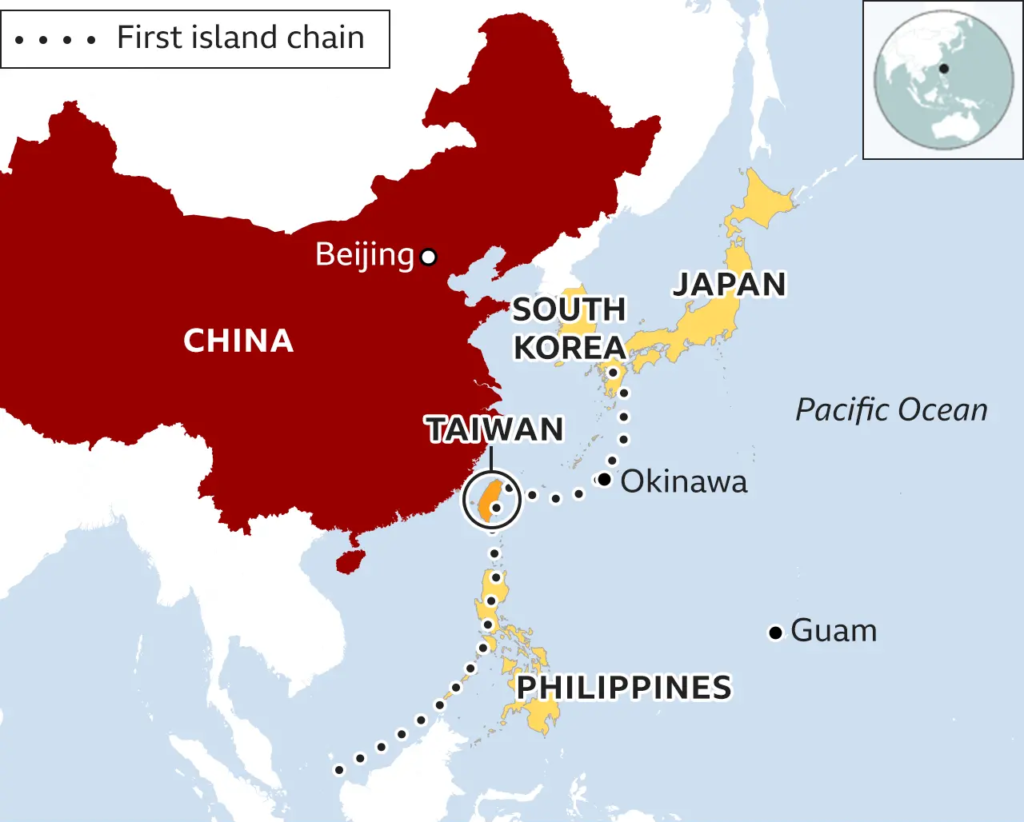Contesting the Narrative: Taiwan’s Assertion of Sovereignty in the Taiwan Strait
The Taiwan Strait, a narrow body of water separating Taiwan from mainland China, has become a focal point of geopolitical tension. China’s increasing assertiveness in the region, including its claims of jurisdiction over the strait, has been met with a firm rebuttal from Taiwan. The Taiwan Defence Ministry’s recent declaration that the strait does not belong to China is a significant assertion of sovereignty and a challenge to Beijing’s narrative. We will examine the context surrounding this declaration, the legal arguments involved, and the broader implications for regional security and the delicate balance of power in the East Asian theater.

China’s Claims and Regional Assertiveness
China’s claim over the Taiwan Strait is rooted in its view of Taiwan as a renegade province that must be reunified with the mainland. This claim extends beyond territorial waters to encompass the strait itself, framing it as an internal waterway rather than an international passage. This interpretation has significant implications for freedom of navigation and the movement of naval vessels, particularly those of the United States and other nations that support Taiwan’s self-governance. China’s attempts to enforce this claim, through military exercises and pronouncements, have raised concerns about potential disruptions to maritime traffic and the escalation of tensions.
Taiwan’s Rejection and Assertion of Sovereignty
Taiwan’s rejection of China’s claim is a crucial element in its broader strategy of self-defense and international recognition. By asserting that the Taiwan Strait is not under Chinese jurisdiction, Taiwan is not only defending its legal rights under international law but also reinforcing its status as a distinct entity. This assertion is vital for maintaining international support and deterring any potential aggression from China. It underscores Taiwan’s commitment to its own sovereignty and its refusal to acquiesce to Beijing’s narrative.
The Legal Complexities of the Strait’s Status
The legal arguments surrounding the status of the Taiwan Strait are complex. International law, particularly the United Nations Convention on the Law of the Sea (UNCLOS), recognizes the principle of freedom of navigation in international waters. While China argues that the strait is not solely an international waterway due to its interpretation of its historical claims and the “one China” principle, Taiwan and many other nations argue that the strait falls under the purview of international law, guaranteeing the right of passage for all vessels.
Geopolitical Implications and Regional Security
The implications of this dispute extend far beyond the immediate context of Taiwan-China relations. The Taiwan Strait is a vital shipping route, and any disruption to traffic would have significant economic consequences for the region and the world. Furthermore, the struggle over jurisdiction in the strait is intertwined with the broader geopolitical competition between China and the United States. The US, which has a long-standing policy of strategic ambiguity regarding Taiwan’s defense, has consistently asserted its right to freedom of navigation in the strait, often sending naval vessels through the area.
A Contested Waterway and Uncertain Future
In conclusion, the Taiwan Defence Ministry’s assertion that the Taiwan Strait does not belong to China is a crucial counterpoint to Beijing’s claims. It is a reaffirmation of Taiwan’s sovereignty, a defense of international law, and a crucial element in the ongoing struggle to maintain peace and stability in the region. The future of the Taiwan Strait will continue to be a subject of intense debate and negotiation, requiring careful diplomacy and a commitment to international law from all parties involved.




















